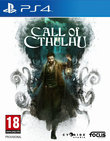We're not sure what it is about Focus Home Interactive and war veterans at the moment, but both the blood-sucking doctor simulator Vampyr, and their more recent horror-themed adventure Call of Cthulhu, star a survivor from the Great War. One of the side effects of the 1920s-ish era in which the games are set, where the vast majority of young to middle aged men you find have only fairly recently come back from the trenches, it's both a nice tie in with the hundred year anniversary of the end of WWI, and a handy way of bringing together some very disturbed individuals for their noir-esque adventures.

Also includes salty old sea dogs too.
Call of Cthulhu stars Edward Pierce, now a private detective, living in 1920s era Boston. With the Great War having taken its toll, a combination of survivor's guilt, relentless nightmares and an alcohol problem means our hero isn't exactly doing great. Struggling with his personal demons, his work like has been neglected too, and now he needs to find himself a case - fast - lest he risk being struck off. Enter Stephen Webster, an art collector and father to the late, and supposedly insane painter, Sarah Hawkins. In death, Ms. Hawkins has been labelled a murderer, accused of killing her whole family in a fire. With naught but a somewhat disturbing painting as a clue, Mr Webster hopes you'll be able to clear his daughters name - and uncover the dark secrets of the strange island of Darkwater she called home in the process.
And boy, does Darkwater have a lot of secrets. What initially appears to be a small colony of now failed whalers soon turns out to have much more sinister side lurking beneath the surface, with Pierce's investigation taking in everything from axe-wielding groundskeepers to island mafia-style bosses, and from corrupted doctors to strange underground cults. And that's not to mention the titular tentacled Cthulhu either. It's a story that's full of twists, turns and surprises, with a pervading sense of mystery that makes it hard to put down. Quite how accurately it represents the H.P. Lovecraft mythos, it's hard for us to say (as we're too chicken to read anything scarier than a Goosebumps book), but Call of Cthulhu is certainly an interesting enough ride, even if you lack the background knowledge.
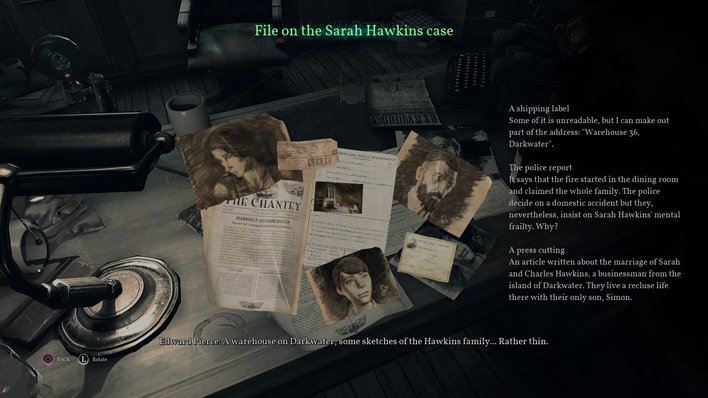
The more you look into the Sarah Hawkins case, the more questions you'll have.
Played from a first person perspective, through the eyes of Edward Pierce, Call of Cthulhu actually plays more like Focus Home Interactive's Sherlock Holmes detective games than anything else. You'll scour the island, searching for clues on the Hawkins case, whilst trying to extract information from the various islanders you encounter along the way. Pierce has a few different skills at his disposal that you can level up role-playing game style to make him more persuasive in conversations, increase his lockpicking skills or improve his ability to spot hidden clues. In turn, these then open up different conversation options or ways of tackling problems during the course of the story, maybe even influencing the way the story plays out - or perhaps just give you extra tit bits of information about key characters and events. Although you're given a choice of questions to choose from when chatting to characters, often you'll only get the chance to ask one, so you'll have to choose carefully about what you want to know the most, or which is going to give you the most useful response. In theory, a persuasive Pierce armed with a lot of medical knowledge is likely to pick up on different clues, and be able to coax out different information than a strength-focused Pierce, who prefers to get his way through brute force and intimidation instead. Choose to focus on the occult instead, and you might get different scenes still along the way too - and it's this ability to tailor your detective to your own play style that's one of the coolest parts.
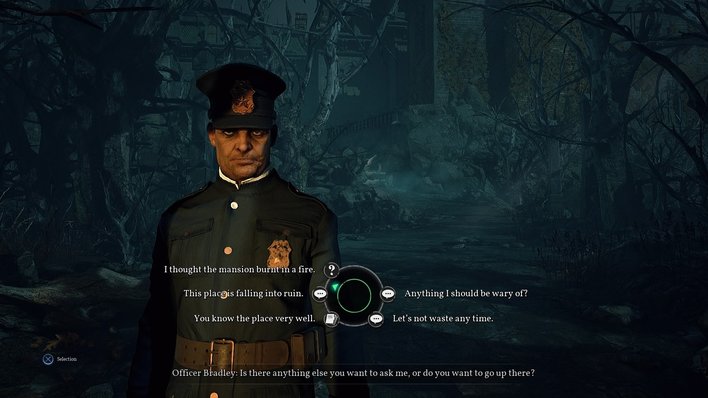
Depending on the conversation options you choose, and any extra background knowledge you've picked up along the way, how the game plays out can change.
The game also frequently veers into CSI Cthulhu at times, as Pierce scours every corner of a bookstore, for example, searching for clues, notes and signs of a struggle, trying to piece together exactly what happened inside. At certain points, he can 'reconstruct' what took place, working his way around the room, filling in the blanks and making deductions based on the evidence he finds - and it's at these points the sometimes seemingly random and innocuous items can reveal some gripping and unexpected conclusions.
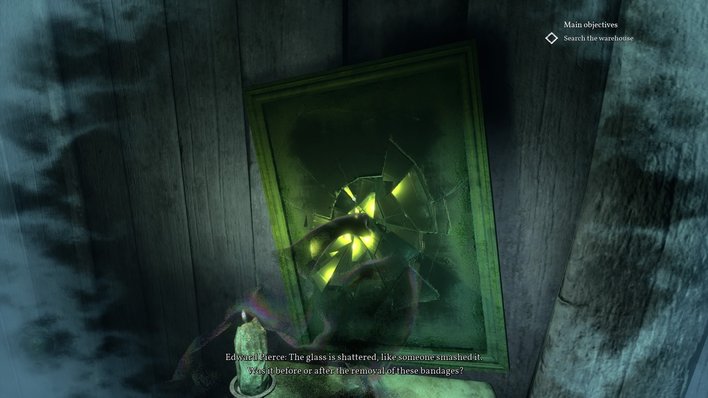
These reconstructions are key to figuring out what transpired in various areas.
It's not all plain sailing though, as Call of Cthulhu does throw in a few more action-packed sequences, presumably in an attempt to mix things up a bit. Stealth sections crop up in a couple of chapters, and while not particularly difficult, it can feel a little dull as you endlessly creep round near-identical looking labyrinthine hallways trying to figure out the right way to go without getting caught. Likewise, combat feels a little shoehorned in. Brief, and not really amounting to much more than clicking on enemies to shoot, it seems a bit at odds with the rest of the game.
There's also an obligatory boss encounter, which sees you playing cat and mouse with a Lovecraftian horror, but sadly, the game falters here too, as the actual route to defeating it can feel a little bit obtuse for several reasons. Number one, you need to locate a specific weapon in a room full of potentials, and number two, to defeat it, you don't actually attack the beast in question. What begins as a nail-biting, intense encounter soon divulges into annoyance as you stumble endlessly around a locked room, without any real clue what you're meant to be doing. Really, Call of Cthulhu should have stuck with what it did best, rather than trying to shoehorn combat and stealth sections in where they don't really work.
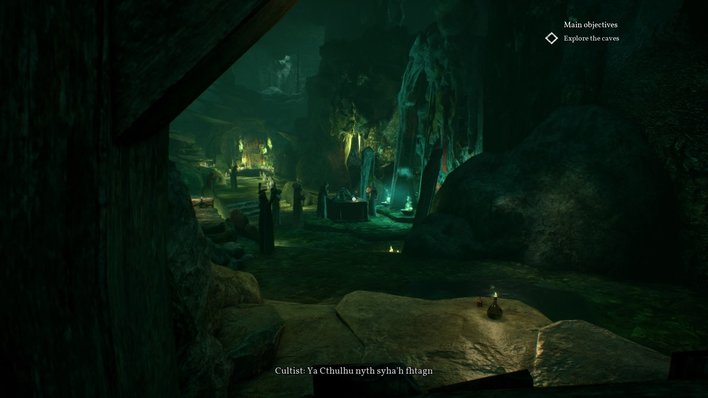
Sneaky sneaky.
Fortunately, such sections are few and far between, and do little to mar the overall experience, which is one of an engrossing story of death, danger and the occult, all wrapped up in a detective noir tale that eventually descends into madness. If you're after something a bit different, and a bit more story-driven, then Call of Cthulhu's mystery is sure to draw you into its dark, tentacled tale that's hard to put down.
Format Reviewed: Playstation 4


